199 – Sgt Smith and The Ham, Part 1 of 1
Welcome to Flash Pulp, episode one hundred and ninety-nine.
 Tonight we present, Sgt Smith and The Ham, Part 1 of 1.
Tonight we present, Sgt Smith and The Ham, Part 1 of 1.
[audio:http://traffic.libsyn.com/skinner/FlashPulp199.mp3]Download MP3
(RSS / iTunes)
This week’s episodes are brought to you by Pendragon Variety.
Flash Pulp is an experiment in broadcasting fresh pulp stories in the modern age – three to ten minutes of fiction brought to you Monday, Wednesday and Friday evenings.
Tonight, Sgt Smith recounts a criminal tale of sight seeing, entertainment, and consumerism, from the mid-century streets of Capital City.
Flash Pulp 199 – Sgt Smith and The Ham, Part 1 of 1
Written by J.R.D. Skinner
Art and Narration by Opopanax
and Audio produced by Jessica May
My Dearest Mulligan,
It was 1957, and I was working downtown, back when I got a lot of raised eyebrows at having earned a uniform amongst Capital City’s bluest. Since the guys were less than enthusiastic in welcoming a no-tongued new chump, I had been relegated to prodding tourists.
Now, my fifteen minutes of fame had come a few years earlier, but accidentally busting a serial killer had earned me little more than a stretch of concrete to wear down. I spent a lot of hours strolling between the junk shops and the museums, and directing folks who’d strayed from the sightseeing circuit.
There were three factions that I was quite familiar with though; the homeless, who hated the shopkeeps who tried to roust them, and loved the buskers who entertained them; the store owners, who loved the buskers that drew crowds, but hated the homeless who they saw as scarecrows for the out-of-town rubes; and, finally, the buskers, who were generally too stoned to bother with either, and mostly wasted their non-entertaining time waging passive aggressive mime-versus-poetry-beatnik wars for the best corner turf.
I became friends with some, and didn’t much care for others. There was a strongman, Jacky Patterson, who, it seemed to me, hauled his weights out in his old jalopy, then blew the day exercising in a ridiculous black spandex outfit. He was actually pretty successful, though, and loud enough that everyone knew him.
He’d tell stories while lifting children over his head, and folks would often get so wrapped up in the telling that his arms would be trembling before they’d remember to snap the photo they’d asked for.
All the brats wanted to ask him about, though, were his fights. They couldn’t figure a guy that strong who wasn’t constantly punching people, so he spun tales for them.
“You spot the moon last night? That big black spot it had?” He’d ask, striking a pose.
“Yeah,” the kids reply.
“Man in the Moon was getting too close to my girl, so I socked him one,” then he’d flex, and, for a second, they’d believe him. That’s the thing, It wasn’t just the charm – he had great patter, sure, but he was there most days, rain or shine, and it showed.
You didn’t see fellas that big back then.
Despite the closed-collar nature of those years, I recall him mentioning that the women in sensible hats were often his largest donors.
Another notable was Eugene Wagner, who would sit inside his sausage stand and mutter endlessly over the perceived insults cast upon him by anyone between the age of eight and eighteen who happened to pass by. His place always seemed on the verge of falling over. Although he made good money in the summer, he lived on it for the winter, and he was constantly broke. He complained eternally that hooligans were stealing various condiments, but I never saw anyone making a break for it with fists full of onions.
I tried his wares a few times, but I was better fed in the College pubs, which liked having me swing by to discourage the rowdies.
Anyhow, it’s around noon, late in the season, and you can feel the locals getting ready to fold up for the winter, or at least move their operations to warmer climes.
I’d wasted my morning keeping an eye out for a hooch-sponge who’d missed the shelter’s breakfast call. He was apparently a regular, and expected, so I’d peeked into alleys and prodded the locals.
Approaching Eugene, I handed him the rumpled note I’d been passing to everyone else.
His grill was smoking, and I’d had to push my way through a crowd of salivating lunch patrons.
“Someone missing?” he asked, raising a greasy eyebrow. He took the sheet with the details and looked it over as I nodded.
“Oh, I know this guy,” he said, “with the beard and the ridiculous red hat. Bought a sausage a couple weeks ago and used all my mustard. I swear he spoons the dill right into his mouth when I’m not looking. Ain’t seen him today though.”
He wasn’t interested in pressing charges on the pickle snatching, so I moved on.
None of the guitarists or poets had noted anything, and, unsurprisingly, the mimes were unwilling to discuss the matter.
As it happened, he was found on top of a shoe store. Whiskey-wings had given him the courage to climb, but they’d abandoned him before he’d managed to descend. Instead, he’d opted to sack out for the night. A better fate than he could have hoped for, considering, but it did bring me to notice that I hadn’t come across the well built Patterson, which was unusual.
The next day was the start of the last big weekend, and the Friday streets were packed. First, I had a poet snatch a country-crooner’s six-string, and chase around a particularly harsh critic.
“Beat me all you want,” shouted the guy in the tweed suit, “but it won’t change how your poor word choices create an unpleasant rhythm throughout the piece!”
Everyone then had sat through too many Bob Hope flicks, and they all thought they were smart arses.
After that, I squandered my hours directing the flow of people along the pavement. I remember not envying the street sweeps, given the clumps of Wagner’s red wax-paper wrappers wadding at the curbs.
Later that same day, a prim auntie slapped a mime. She said he was making lewd approaches, but he indicated she simply wasn’t a fan of the old rope gag. Did she want to have him arrested? No, but she insisted he drop the French act till she was out of sight. Given that I had her white handed, I asked if he wanted to press charges, but he shook his head no.
When I finally punched out, I did so thoroughly. I can’t say for sure what we got up to, Saturday and Sunday, but, given the date, it’s likely your Ma and I loaded the buggy to head to your Gramps’ cottage, so we could help get it buttoned for winter.
Monday was a different world. Instead of dominating the streets, the tourists looked like harried clusters of pigeons poking sidewalk scraps. The bars held only the regulars on their well-claimed bar-stools, the out-of-towners having drained away like the tide retreating from the pillars of a pier. I’d have business with a lot of them when the snow came, but, at that point, they were still friendly and willing to guffaw with Johnny Lawman over the mooks who’d finally migrated.
Now, while I was gone, we’d gotten word from Beefcake Patterson’s girlfriend, who reported him unaccounted for.
Thing is, I wasn’t able to shake Wagner’s question.
“Someone missing?”
He’d asked it before I’d handed him my sheet, and the assumption bothered me.
It was one of those moments: There was no one around when I approached the smell of the cooking meat, and I opened my notepad, wrote a single line, then set it on the counter and tapped it twice.
“Our strongman is missing.”
For a second time, he anticipated my thinking. He was out the little screen-door on the side of the booth before I could make it around the corner, but he’d been pretty generous in sampling his own product, and I had Wagner huffing and in cuffs by the end of the block.
I wasn’t there for it, but, back at his place, they found a monster meat grinder, and on a workbench in the basement, Patterson’s hand.
That’s it.
Oddly, the meat in the grinder was never tested, and the whole place was bagged, filed, and forgotten about. They hit Wagner with a murder charge, and he pulled a bum straw on his court appointed lawyer. Three years later he was found dead in a prison shower.
If you meet the right grade-schooler, you’ll find the story continues to float around as an urban legend, but the newspapers never got a whiff of it.
I know they did it to keep from appearing on a very special 60 Minutes, but it’s hard to know how many people moved through the district that summer, or how many disappeared into Wagner’s kitchen before we caught on. Maybe it’s best that all those tourists remained unaware of the local delicacy they were consuming.
Now I need to take a walk. Stop eating so much fast food crap.
Love,
Dad
Flash Pulp is presented by http://skinner.fm, and is released under the Canadian Creative Commons Attribution-Noncommercial 2.5 License.
Text and audio commentaries can be sent to skinner@skinner.fm, or the voicemail line at (206) 338-2792 – but be aware that it may appear in the FlashCast.
– and thanks to you, for reading. If you enjoyed the story, tell your friends.
 Tonight we present, SE7 – The Phantom Suburb, Part 1 of 1.
Tonight we present, SE7 – The Phantom Suburb, Part 1 of 1. [audio:http://traffic.libsyn.com/skinner/FlashCast034.mp3](
[audio:http://traffic.libsyn.com/skinner/FlashCast034.mp3](



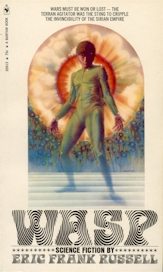
 Tonight we present, SE6 – The Pale Child, Part 1 of 1.
Tonight we present, SE6 – The Pale Child, Part 1 of 1. Tonight we present, SE5 – The Pool Boy, Part 1 of 1.
Tonight we present, SE5 – The Pool Boy, Part 1 of 1. [audio:http://traffic.libsyn.com/skinner/FlashCast033.mp3](
[audio:http://traffic.libsyn.com/skinner/FlashCast033.mp3](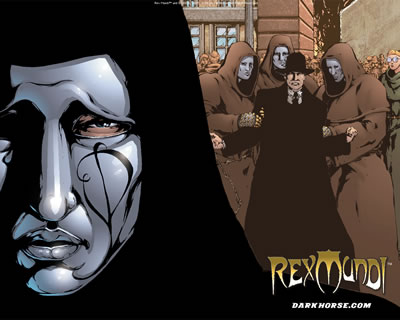
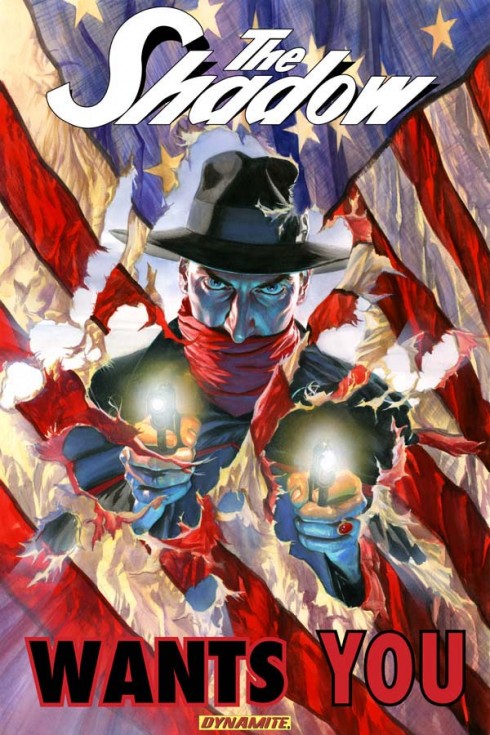

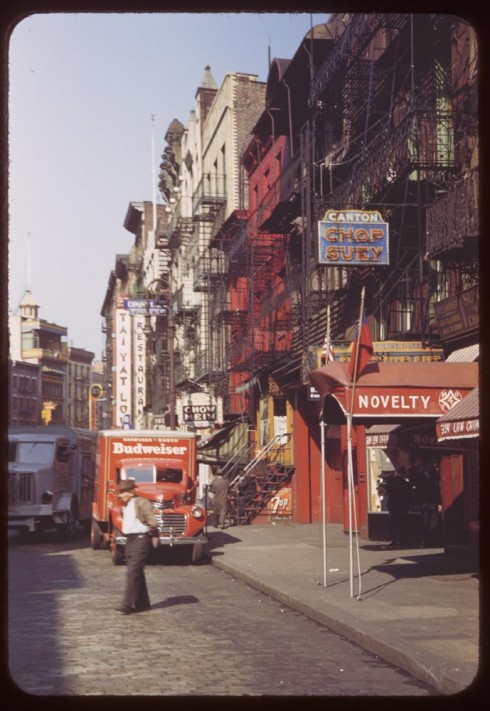
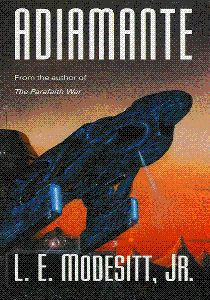
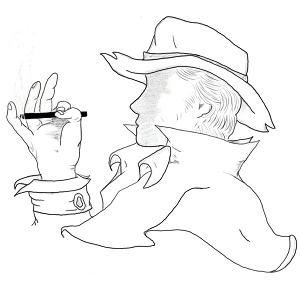 As the roar of the insects approached, Blackhall hoped his traveling companion, Sour Thistle, was sufficiently sheltered, and lofted high the silver chain which dangled from his moist palm. The denizens of the fen also understood the imminent threat, and their sudden hush only amplified the approaching drone.
As the roar of the insects approached, Blackhall hoped his traveling companion, Sour Thistle, was sufficiently sheltered, and lofted high the silver chain which dangled from his moist palm. The denizens of the fen also understood the imminent threat, and their sudden hush only amplified the approaching drone.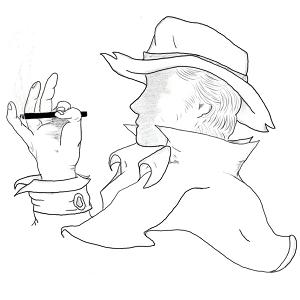 The fever blur of the swamp’s heat made the approaching bent figure of the old man seem spectral, but, as he neared the cusp that marked the edge of his bog, Blackhall was able to scrutinize his wizened frame. The newcomer’s face was lined like a spider’s web, his wrinkles having formed a connecting network that continued down his neck and below the maroon robe he wore. The garb had once been of handsome craftsmanship, but his shrunken stature had long left the hem trailing in the muck. About his collar was a string of beads, which held a pendant composed of an array of intricate golden loops. At the center of the coils rested an emerald of unlikely bulk.
The fever blur of the swamp’s heat made the approaching bent figure of the old man seem spectral, but, as he neared the cusp that marked the edge of his bog, Blackhall was able to scrutinize his wizened frame. The newcomer’s face was lined like a spider’s web, his wrinkles having formed a connecting network that continued down his neck and below the maroon robe he wore. The garb had once been of handsome craftsmanship, but his shrunken stature had long left the hem trailing in the muck. About his collar was a string of beads, which held a pendant composed of an array of intricate golden loops. At the center of the coils rested an emerald of unlikely bulk.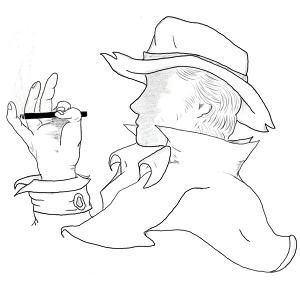 At first the distance from Blackhall to the inky tendrils which had drifted from the verdant green of the forest made it appear as if thick smoke had come wending from some unseen flame. As it moved closer, however, purpose and cohesion became apparent: a firm lick of darkness first touched, then enveloped, the laggard of Sour Thistle’s bolting honour guard.
At first the distance from Blackhall to the inky tendrils which had drifted from the verdant green of the forest made it appear as if thick smoke had come wending from some unseen flame. As it moved closer, however, purpose and cohesion became apparent: a firm lick of darkness first touched, then enveloped, the laggard of Sour Thistle’s bolting honour guard.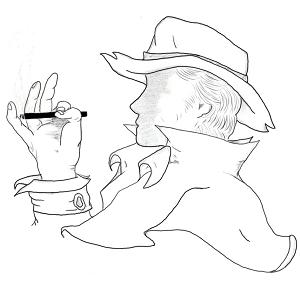 A further two days of slow travel found Blackhall sitting on the shore of a nameless lake, with the sun strong overhead, and his gear resting just above where the gentle slope broke from grass to sand. Tossing a flat stone, he watched it skip once, lose its equilibrium, and disappear below the still surface.
A further two days of slow travel found Blackhall sitting on the shore of a nameless lake, with the sun strong overhead, and his gear resting just above where the gentle slope broke from grass to sand. Tossing a flat stone, he watched it skip once, lose its equilibrium, and disappear below the still surface.